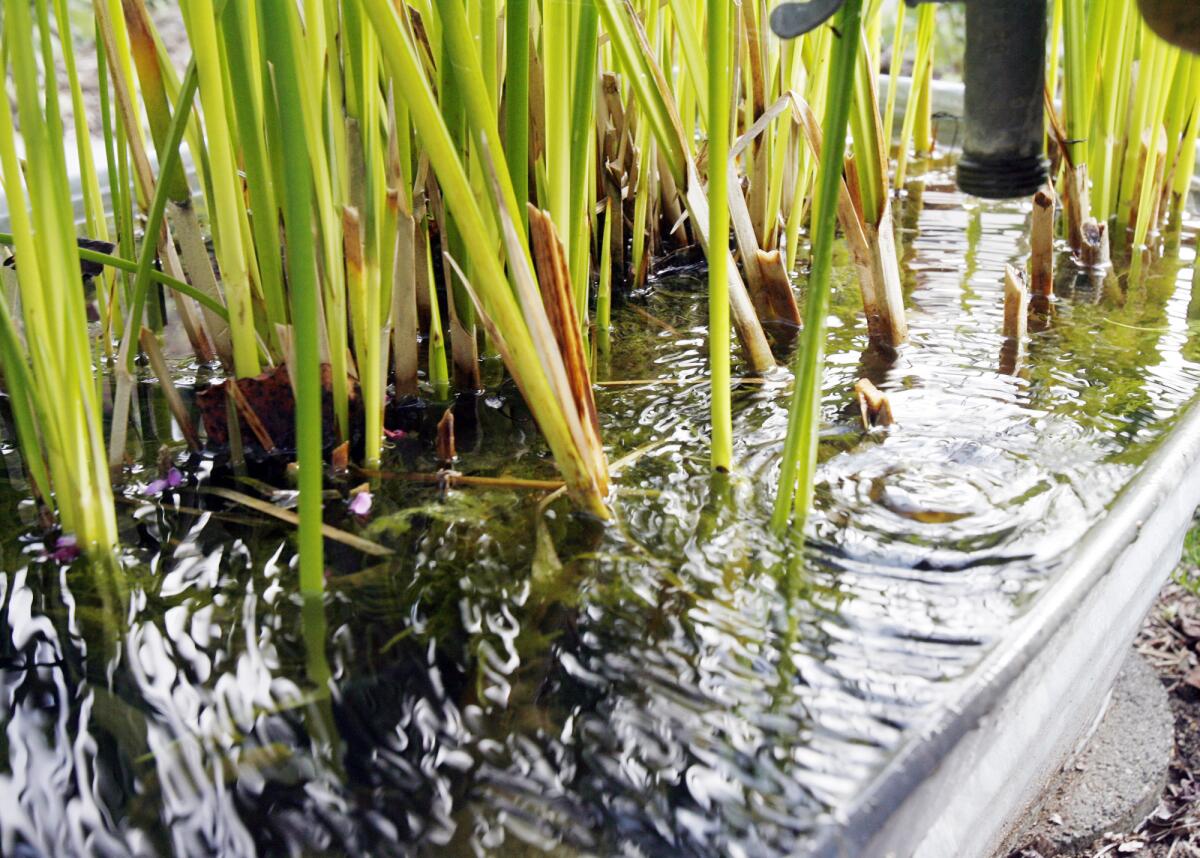Council reluctantly adopts county code calling for rainwater capture

Developers and residents who plan to build large-scale projects will soon be forced to include plans for capturing rainfall, according to an ordinance reluctantly adopted Monday by the La Cañada Flintridge City Council.
Council members agreed to adopt language offered in Los Angeles County Code to comply with mandates from the state to capture and treat stormwater, to reduce the impact of built-out areas and promote a natural watershed.
That code specifies that large-scale projects contain plans for “low impact development” (LID) areas that would allow rainwater to penetrate into the soil, instead of collecting on hardscape surfaces where it often mixes with oil and pollutants before entering storm drains and, ultimately, the ocean, Public Works Director Edward Hitti told the council.
“The intent of this ordinance is to collect any runoff, whether a commercial or residential property, and be able to help the city, as well as the developer or development, (learn) how to capture that runoff, how to manage it and how to treat it, to minimize pollution and take advantage of that source of water,” Hitti said.
The regulation means certain projects must have an LID plan in place before building and grading permits are issued. It applies to: new development projects involving 1 acre or more of disturbed space; those with more than 10,000 feet of impervious surface area (including driveways); new retail gas outlets, restaurants or parking lots of 5,000 square feet of surface area; and other projects of similar scope, including residential plans.
The California Regional Water Quality Control Board, to which all municipalities are subject, requires cities to adopt and enforce LID regulations to create a means for better managing stormwater, so that it may be treated as a resource rather than a waste product, he continued.
Several ways to retain stormwater have been identified, city staff report, including rain gardens, vegetated rooftops, rain barrels and permeable pavements. Hitti said the city would work with applicants about the establishment and maintenance of LID systems.
Because it is a state mandate, cities have no choice about whether they want to comply with or enforce the rules, and Monday’s vote was simply to adopt the county’s established regulation language, City Manager Mark Alexander told the council.
“This is coming down from the state, and we’re mandated to do these things,” he said.
In his remarks, Councilman Mike Davitt said he understood the need to comply, but expressed concerns about the potential ramifications for future development projects.
“My concern is obviously you don’t want this to be a burden on either our business community or our residential community,” said Davitt. “With that being said, it’s something we need to do, and there are a lot of good reasons to do it.”
Mayor Dave Spence said he would support the language adoption, but was skeptical of big government intruding at the local level.
“The City Council is not forcing this on businesses and residents — the federal and state government is forcing us to force this on the people,” Spence said. “If a guy has to repave his driveway in Flintridge, and it’s 10,000 square feet it’s going to cost him a ton of money. I don’t like to force these types of things on the local people, but there’s not much we can do.”
--
Sara Cardine, sara.cardine@latimes.com
Twitter: @SaraCardine
